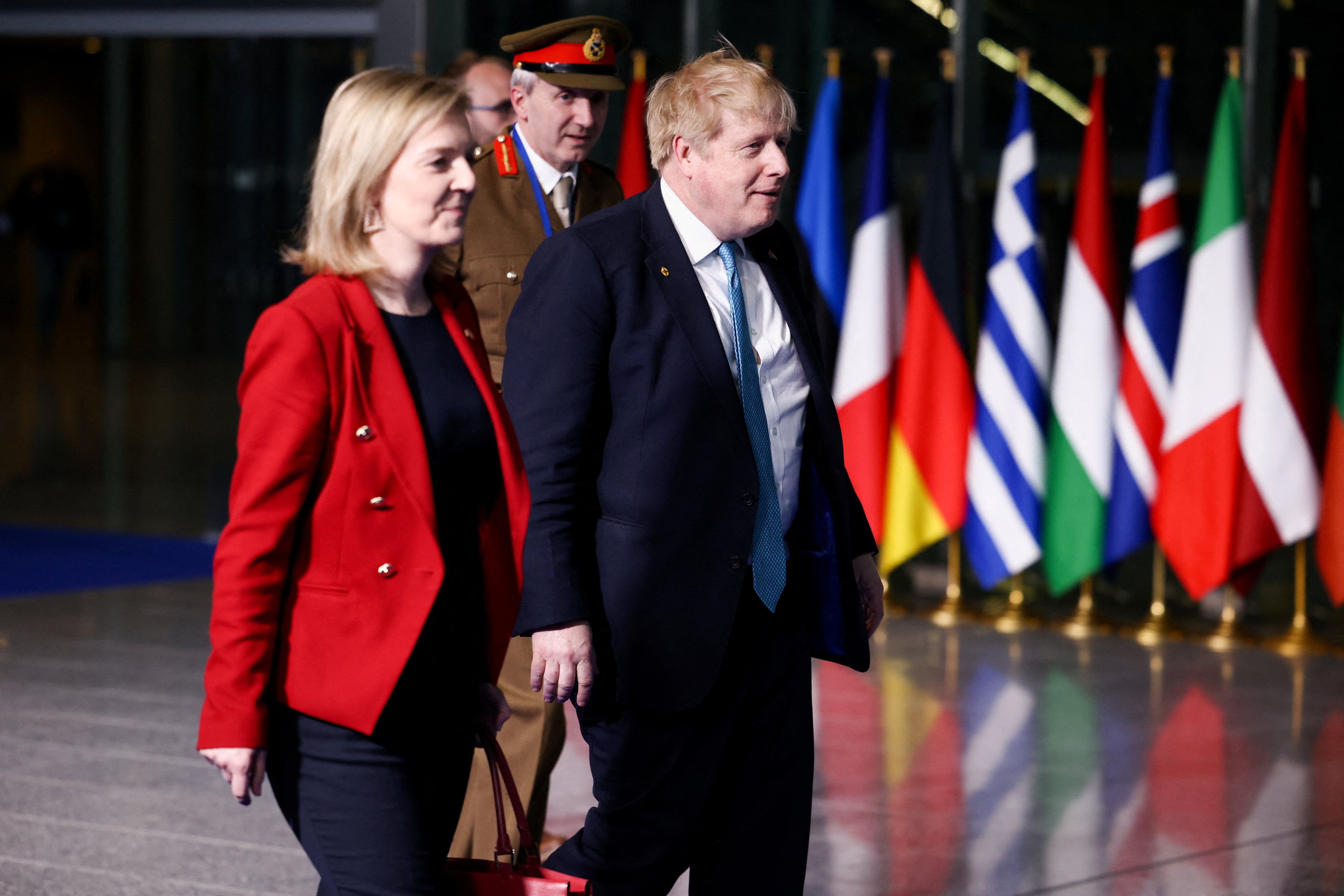The Tories need an honourable and competent version of Boris Johnson, but that isn’t on offer
Editorial: There is no greater proof that the Conservative Party is exhausted and fresh out of ideas after 12 years in power than this present contest

Tory leadership contests have a habit of springing surprises. Margaret Thatcher, who looks so much a natural leader now, was a surprise challenger to the then leader and former prime minister Edward Heath back in 1975. Her secret weapon was probably her very obscurity – many disgruntled backbenchers backed her as a protest vote, considering her a mere stalking horse until she actually won on the first ballot.
William Hague beat the establishment crown prince Ken Clarke in 1997. The upstart David Cameron, with one polished performance at the 2005 party conference, snatched victory from the favourite David Davis. The thing that they all had in common was the ability to create and build momentum. Tories, no less than anyone else, like to back a winner.
At the moment there isn’t any sign of a clear frontrunner in the 2022 contest. Rishi Sunak seems to have recovered some of his composure after his problematic family tax affairs were revealed in the spring (a scoop, as revealed in The Independent, that might have finished him for good if it had come out now). He will plainly feature in the early rounds, even with much higher thresholds being set by the 1922 Committee, and very likely in the final two, though he may yet trip up again.
It remains something of a mystery as to who would challenge him. But assuming it will be a figure from the militant right, it might be Suella Braverman or Kemi Badenoch, currently in a bidding war for who can be the most outrageous.
In fact, even the likes of Mr Sunak, Tom Tugendhat and Jeremy Hunt have had to compromise with the populist-nationalist wing of the party. A figure in the mould of such past luminaries as Mr Clarke or Mr Major would be hard pushed to get the necessary signatures to stand these days, let alone win.
It is all very well for Tory leadership hopefuls to toss human rights and sound public finances into the gambling pot for the top job – that’s politics. Yet sooner or later the winning candidate will have to win over not just 100,000 or so elderly, rich, white southern Tory members they need to become the PM, but many of the 47 million voters they will need to stay as prime minister after the next general election. Time is running out.
In other words, to get elected to the leadership the candidates all have to tack to the hard right, but then have to become more centrist as the election approaches. Indeed, if they did try to implement all of their reckless promises, they might crash their own government and split their own party before making it to polling day. Words will be eaten, campaign promises will be fudged and resentments will grow.
To keep up to speed with all the latest opinions and comment, sign up to our free weekly Voices Dispatches newsletter by clicking here
More than most, this leadership election seems to be a case of a political party talking to itself, or rather shouting at, lecturing and smearing one another. The candidates don’t have much to say to the nation as a whole, and nothing about how they will defeat a resurgent Labour Party or tackle the revival of the Liberal Democrats. After the May and Johnson years, the slogan “coalition of chaos” doesn’t have the force it once enjoyed.
There is no greater proof that this Conservative Party is exhausted and fresh out of ideas after 12 years in power than the present contest, with its lacklustre line-up. Indeed, the contest isn’t even supposed to be about ideas or policies, because it was the prime minister’s incorrigible behaviour and lack of integrity that finally drove him out, not the issues.
What they really need is an honourable, more competent version of the charismatic Boris Johnson. Unfortunately, that’s not on the ballot.
Join our commenting forum
Join thought-provoking conversations, follow other Independent readers and see their replies
Comments
Bookmark popover
Removed from bookmarks